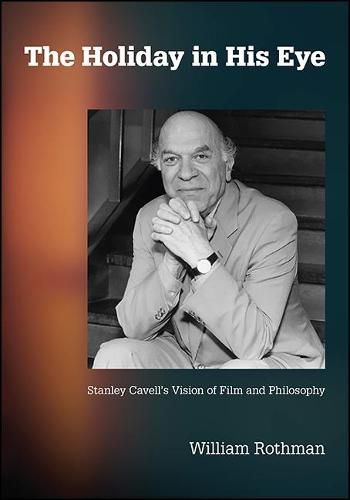Readings Newsletter
Become a Readings Member to make your shopping experience even easier.
Sign in or sign up for free!
You’re not far away from qualifying for FREE standard shipping within Australia
You’ve qualified for FREE standard shipping within Australia
The cart is loading…






From The World Viewed to Cities of Words, writing about movies was strand over strand with Stanley Cavell’s philosophical work. Cavell was one of the first philosophers in the United States to make film a significant focus of his thought, and William Rothman has long been one of his most astute readers. The Holiday in His Eye collects Rothman’s writings about Cavell-many of them previously unpublished-to offer a lucid, serious introduction to and overview of Cavell’s work, the influence of which has been somewhat limited by both the intrinsic difficulty of his ideas and his challenging prose style. In these engaging and accessible yet philosophically serious and rigorously argued essays, Rothman presents an original, insightful, and compelling vision of the trajectory of Cavell’s oeuvre, one that takes Cavell’s kinship with Emerson as inextricably bound up with his ever-deepening thinking about movies.
$9.00 standard shipping within Australia
FREE standard shipping within Australia for orders over $100.00
Express & International shipping calculated at checkout
From The World Viewed to Cities of Words, writing about movies was strand over strand with Stanley Cavell’s philosophical work. Cavell was one of the first philosophers in the United States to make film a significant focus of his thought, and William Rothman has long been one of his most astute readers. The Holiday in His Eye collects Rothman’s writings about Cavell-many of them previously unpublished-to offer a lucid, serious introduction to and overview of Cavell’s work, the influence of which has been somewhat limited by both the intrinsic difficulty of his ideas and his challenging prose style. In these engaging and accessible yet philosophically serious and rigorously argued essays, Rothman presents an original, insightful, and compelling vision of the trajectory of Cavell’s oeuvre, one that takes Cavell’s kinship with Emerson as inextricably bound up with his ever-deepening thinking about movies.